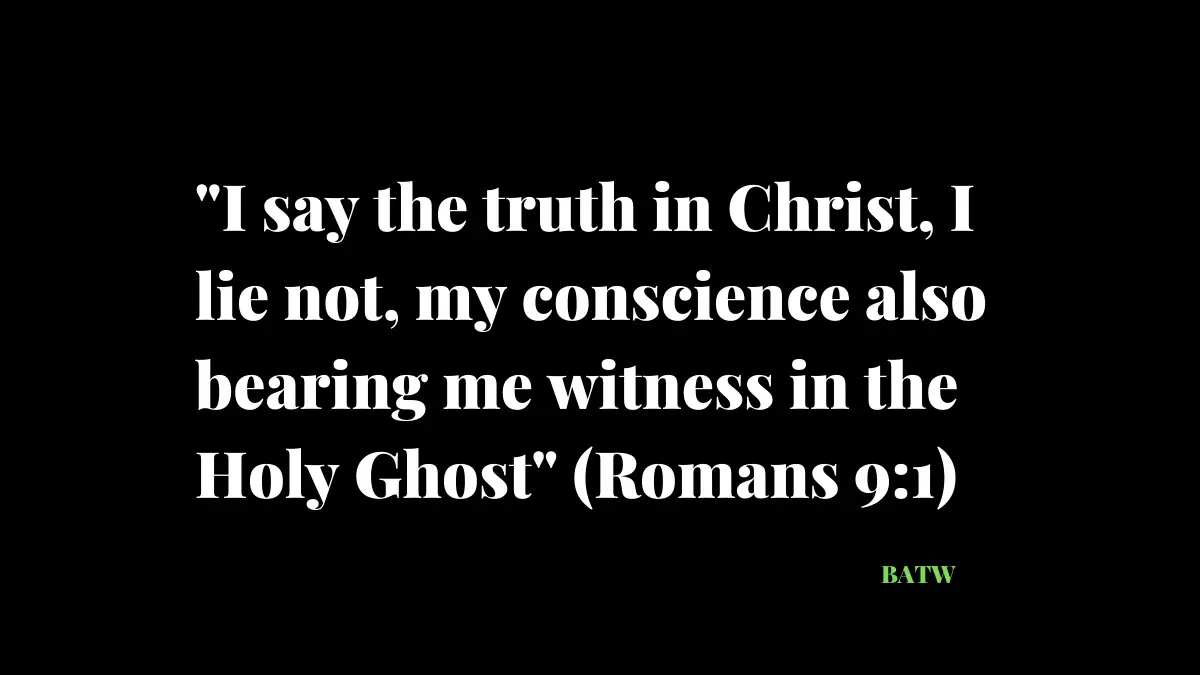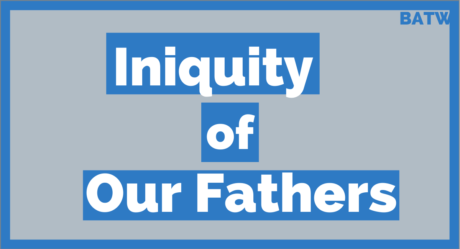Bad or Good Conscience?
As Apostle Paul stood before the High Priests and the Sanhedrin Council, he made a poignant remark, which emphasized the importance of a good conscience before God in a Believer.
“And Paul, earnestly beholding the council, said, Men and brethren, I have lived in all good conscience before God until this day” (Acts 23:1).
What does Paul mean by this statement? In my words, he was stating that that day was the worst day of his life since he has been born again.
On that day, his “conscience before God” wasn’t “good” at all. What was the reason for this? Soon, he will reveal it to us!
Everyone has a conscience. Sinners and Believers have scruples. But whether it’s good or bad is another matter!
Why Did the High Priest Give This Command?
“And the high priest Ananias commanded them that stood by him to smite him on the mouth” (Acts 23:2).
Ananias the High Priest recognized the gravity of Apostle Paul’s statement. He, by his opening remarks, had articulated that the assembly of High Priests and The Council had corrupted his “good conscience before God”.
However, before we analyze Apostle Paul’s statement, let’s agree on what is the conscience?
But What is the Conscience?
According to Merriam-Webster’s, the conscience is: “the sense or consciousness of the moral goodness or blameworthiness of one’s own conduct, intentions, or character together with a feeling of obligation to do right or be good; a faculty, power, or principle enjoining good acts”.
Note that this dictionary didn’t mention anything concerning the Lord God in its definition of conscience. But a person’s conscience must also include his or her obligations to the Lord God and to humanity.
In contrast, according to the Holy Bible, one of the meanings of it, is the faculty of an individual that convicts or excuses him or her of wrong or right respectively.
Here is an example of it convicting.
“And they which heard it, being convicted by their own conscience, went out one by one, beginning at the eldest, even unto the last: and Jesus was left alone, and the woman standing in the midst” (John 8:9).
How the Lord See It!
But, sometimes it not only convicts but it also excuses the conduct of others.
Here’s a pertinent example of this.
“Whatsoever is sold in the shambles, that eat, asking no question for conscience sake.
For the earth is the Lord’s, and the fulness thereof.
If any of them that believe not bid you to a feast, and [you] be disposed to go; whatsoever is set before you, eat, asking no question for conscience sake.
But if any man [says] unto you, This is offered in sacrifice unto idols, eat not for his sake that shewed it, and for conscience sake: for the earth is the Lord’s, and the fulness thereof:
Conscience, I say, not thine own, but of the other: for why is my liberty judged of another man’s conscience?” (1 Corinthians 10:25-29).
The Believer’s Morals
In the quotation, immediately above, Apostle Paul teaches the Church a fundamental lesson concerning the use of the Believer’s principles.
In it, he furnishes us with the liberty to “eat” or not to eat contingent on the situation and he also addresses how our behavior could impact the consciences of others.
So, to summarize the diction of the conscience, we observe that it is the power of a Believer to differentiate right from wrong through his or her thoughts and to respond in a manner that pleases man and God.
It’s the middle man or “the mean” that watches over the thoughts, which either will accuse or excuse one another (Romans 2:15).
Another biblical meaning of conscience exists. It is more than being aware of our own “moral goodness or blameworthiness of one’s own conduct” because it by necessity must include how we respond to the behaviors of others and to the Lord God.
The Duty of Believers’ Consciences
And sometimes the duty of our consciences does not involve any actions, intentions, or obligations, but the desire to please the Lord God.
Therefore, not only must our consciences be sensitive to man, but they must be pure before the Lord God.
Again, Apostle Paul says it best:
“And herein do I exercise myself, to have always a conscience void [of] [offense] toward God, and toward men” (Acts 24:16).
And these twin goals are interdependent, for we cannot possess consciences rife with offenses toward humanity, yet free from wrongdoings toward God.
Our consciences must be free from sins toward God and men.
In closing, none of us was born with a good conscience free from wrongdoing before God.
So, how do we attain to good conscience towards God and humanity? That, my friends, is the subject of my next post. So, stay tuned!



